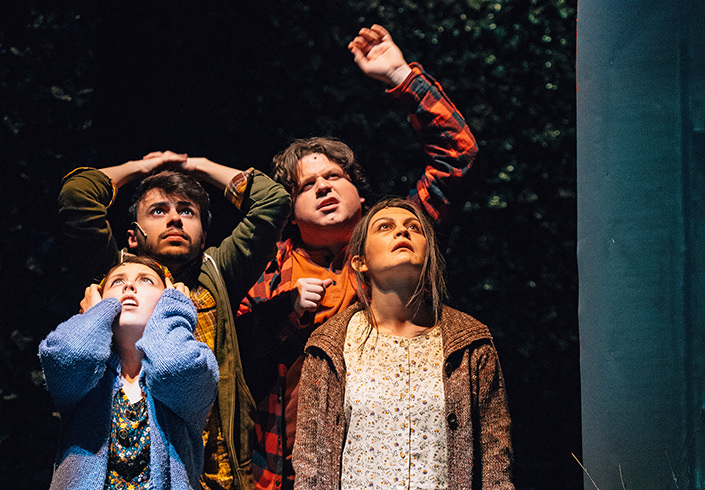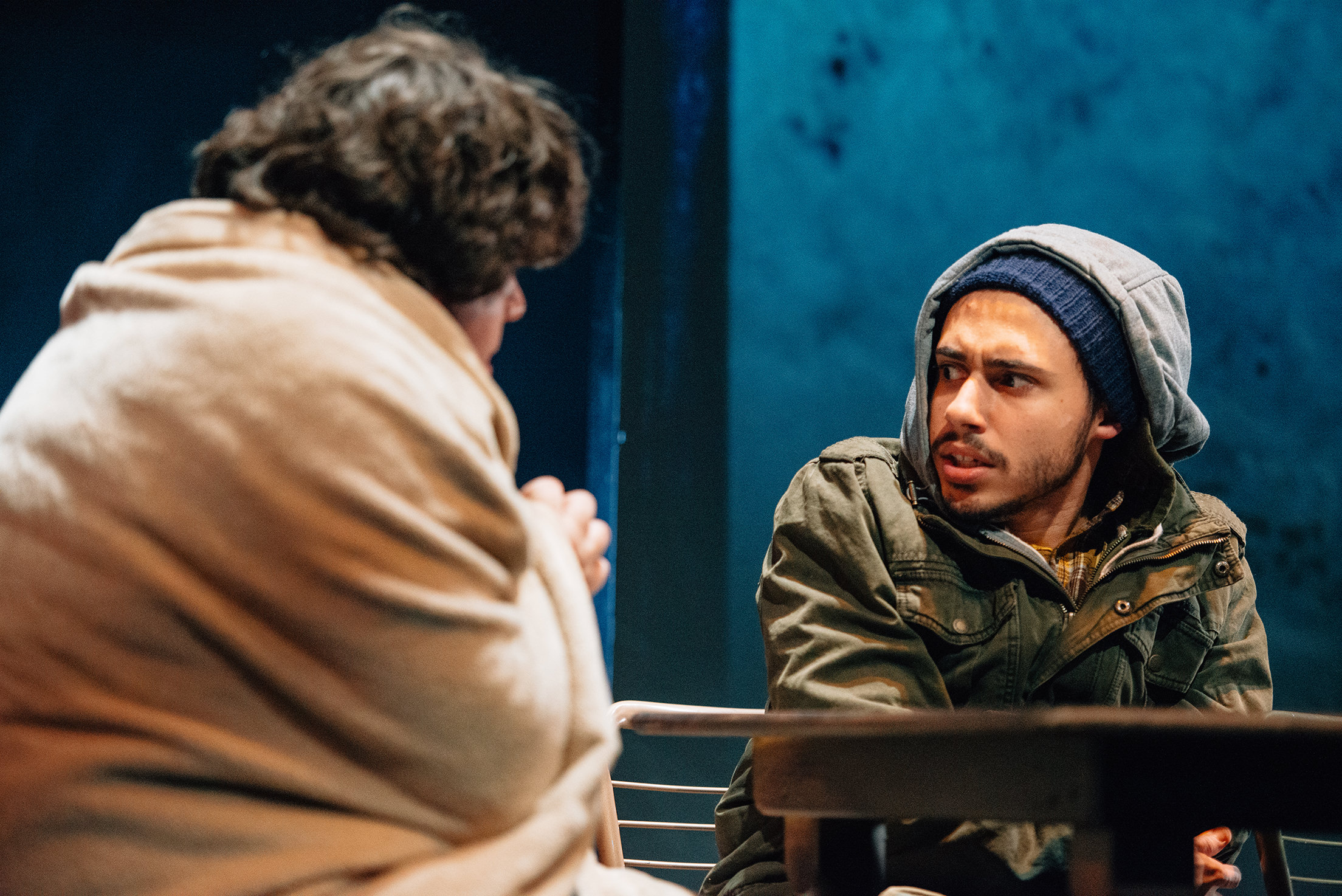Dog Days gives students an inside look at composing and mounting a contemporary opera
by Stephanie Kulke
New York composer David T. Little looks completely at home in a classroom at the Ryan Center for the Musical Arts. In his third Bienen School residency, he easily navigates the lakefront campus and knows where to find the best coffee (Colectivo). The dozen undergraduate, graduate, and postgraduate students in Hans Thomalla’s composition class have the score of Little’s Dog Days open on their laptops and are peppering him with questions about composing and developing a career.
A faculty member at the New School in New York City, Little is only about a decade away from his own student days. In 2004, between completing his master’s degree and beginning his doctorate, he composed the first songs that would eventually go into Dog Days. As a private student of Osvaldo Golijov in Boston, Little wrote the song cycle Songs of Love, Death, Friends, and Government. During a lesson, Golijov suggested that the songs felt like studies for operas.
One of the cycle’s songs, “After a Film by Ellie Lee,” depicts the landscape of Lee’s short film Dog Days, based on the 2001 short story of the same name by Judy Budnitz. Another of the songs, “Two Marines,” would become the penultimate number in Little’s first opera, Soldier Songs—a monodrama for which he also wrote the libretto. Little says, “There are seven songs total in this cycle, and I often wonder: will more operas come out of it?”
Although opera was not initially on his radar, Little set his sights on composing after hearing Danny Elfman’s score for the movie The Nightmare Before Christmas. In Elfman’s film music, Little recognized a convergence of popular and classical styles that aligned with his own eclectic musical tastes.
Following Soldier Songs (2006), Little completed the operas Vinkensport (2010), Dog Days (2012), and JFK (2016)—all collaborations with librettist Royce Vavrek—as well as Artaud in the Black Lodge (2019), with a libretto by Anne Waldman and additional lyrics by Little himself.
In response to student questions about how to mix musical styles and how to know when a work is complete, Little pointed to a bathtub scene from JFK that started as a country-western song and evolved into an orchestral piece. “As a composer, you need to find what delights you,” Little said, “and create from an honest place of where you are at that moment.”
Little says the writing phase calls for “caring deeply,” while editing calls for detachment. After recording a run-through of a new work, he sets it aside for a week or two. Then he listens all the way through, making notes. “I’ve realized, like the view over Manhattan, I can’t see the overall piece as one. I have to trust that the other parts I can’t see are okay.” He also finds that working in concentrated blocks of time, such as a continuous weekend (including an all-nighter), can help him tap into the subconscious.
Second-year master’s student Jesse Steele said he identified with Little’s composing process of finding inspiration in multiple places and grabbing those that are most useful to serving the project. He also gained appreciation for the importance of the editing process. Doctoral composition student Jasmine Thomasian found particular inspiration in this advice from Little: “When your gut tells you you’re right and your head tells you you’re wrong, you’re onto something.”

